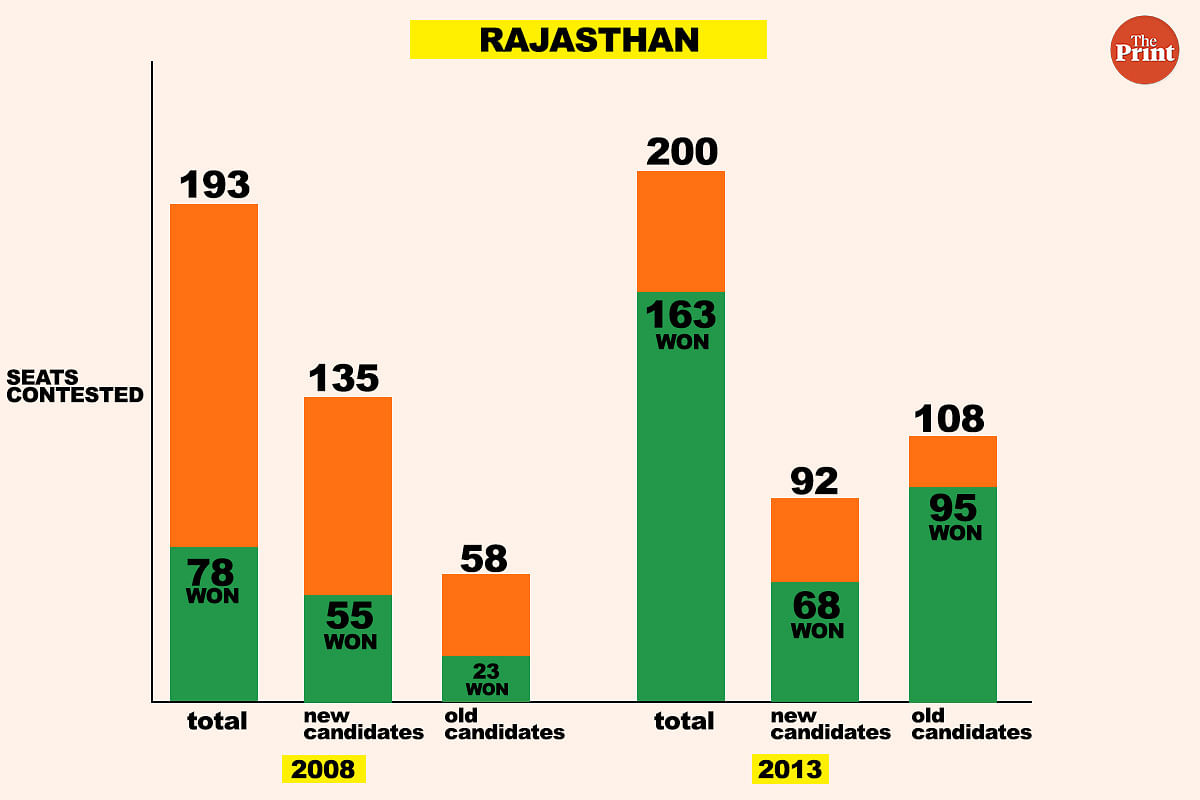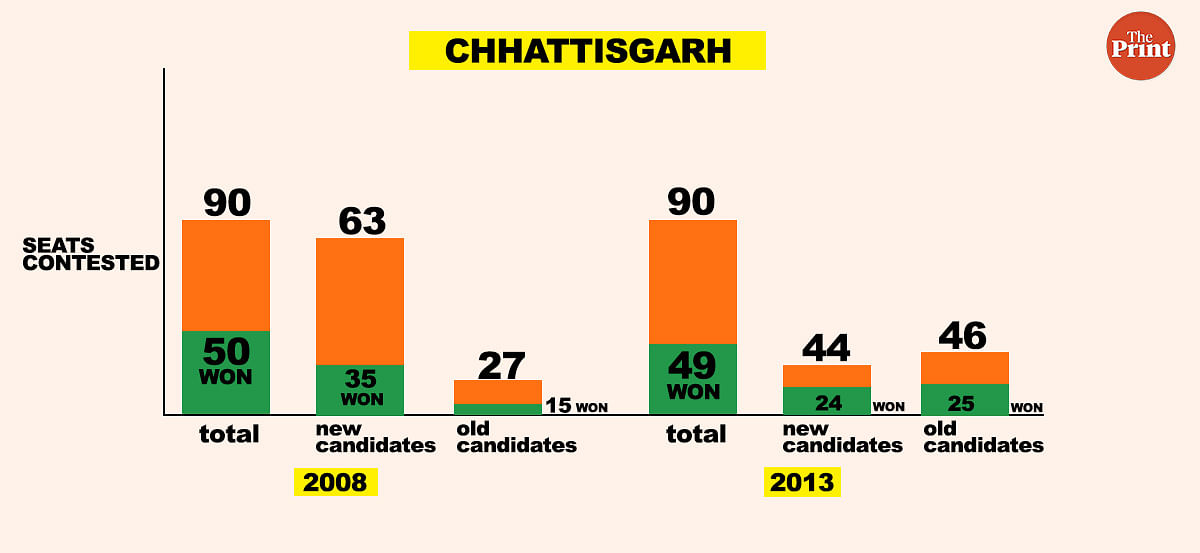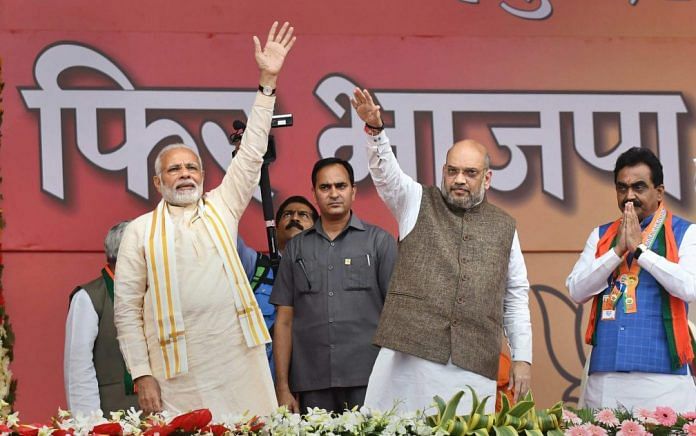Party expected to follow the strategy of fielding fresh candidates to beat anti-incumbency in MP, Rajasthan and Chhattisgarh.
New Delhi: The Bharatiya Janata Party (BJP) is working on a plan to deny tickets to select serving MLAs to beat anti-incumbency in Rajasthan, Madhya Pradesh and Chhattisgarh.
It has already excluded 14 legislators, including a minister, from the 78 candidates it has declared for the 90-member Chhattisgarh assembly.
The strategy is one that Prime Minister Narendra Modi adopted in Gujarat, when he was the chief minister, to win successive elections.
A look at the success rate of new candidates in the poll-bound states in the last two elections, however, shows that this strategy doesn’t necessarily produce dramatic results even though it might, to some extent, pre-empt complete disasters.
For instance, the party fielded 135 new faces in 193 seats it contested during the 2008 Rajasthan assembly elections. Of them, only 55 won, a strike rate of 40.74 per cent, similar to the one notched up by MLAs who were re-nominated (see charts).



The BJP had lost power in 2008 but in 2013, when the party won in Rajasthan, the success rate of fresh faces improved dramatically. But so did the success rate of sitting MLAs, who did even better.
Also read: BJP targets 50-plus seats in assembly polls to form its own govt in J&K
‘Should be seen in perspective’
BJP leaders argue that the results have to be seen in perspective, particularly when there is anti-incumbency.
The party relies on internal surveys to determine the popularity of serving MLAs and decides on whether to field them again or replace them with fresh candidates.
A BJP strategist based in New Delhi said that the party only fields new candidates in seats where it has little chance of winning and hence any victory is a bonus.
“The seats where new candidates are fielded are mostly deemed as lost. So, any gain on these seats is a gain for the party,” said the leader. “In 2013, the strike rate of new candidates helped us form the government in these three states”.
At times, the BJP’s fresh faces have been politicians who were not members of the outgoing assembly but had contested elections in the past.
“In all the states, we need experienced people as well as fresh faces as we are battling anti-incumbency,” said a senior party leader. “The internal assessment has been done in many seats. It is only our strongest serving MLAs who will get a chance to repeat their performances.”
Sanjay Kumar, the director of the Centre for the Study of Developing Society, a New Delhi-based think-tank, believes that changing candidates does give political parties a lease of life.
Also read: BJP latches on to another poll promise it may not be able to keep — expelling ‘infiltrators’
“People are unlikely to vote for the same person in many of the seats. This is what we call the third level of anti-incumbency,” said Kumar.
“Changing candidates in weak seats will certainly help BJP. It cannot possibly harm BJP,” he explained.
Strategy for these elections
The BJP is expected to implement the strategy in the three crucial states that are scheduled to go to assembly polls within weeks. While the party has announced its first list of candidates for Chhattisgarh, which is scheduled to go to the polls on 12 November, it is yet to do so for Madhya Pradesh and Rajasthan.
The serving MLAs in Chhattisgarh were only offered a ticket if the internal survey approved of their chances, sources said.
Sources added that a good number of serving MLAs secured tickets as they either had a good track record, did not have a negative image in their constituencies or fit with the dominant caste in the constituency.
ThePrint has learnt that the decision to approve a name or to disallow someone from contesting is being taken at the highest level in the party, with party chief Amit Shah and Prime Minister Narendra Modi keenly monitoring the contests.




this is power to deny ticket and sensitivity towards people